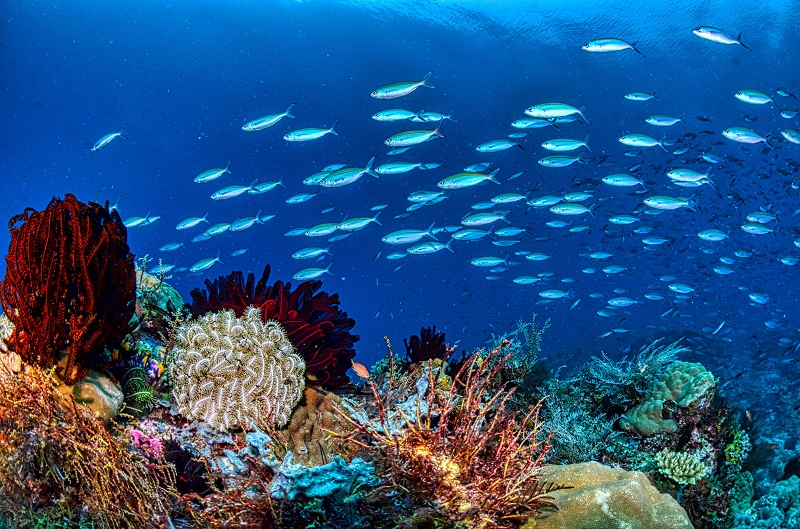LSU Coast & Environment Researcher Working to Improve Climate Change Impact Forecasts for Marine Ecosystems
September 21, 2021
BATON ROUGE—Millions of people depend on oceans for food and income. A recent report from the Intergovernmental Panel on Climate Change states that at least 83 percent of the ocean’s surface will continue to warm this century, which will negatively affect lives and livelihoods. Additionally, a new international study that includes research from LSU found that higher resolution data are critical to predict how ocean warming will impact various ocean species and marine ecosystems.
The study suggests that while marine ecosystem models are the key tools used to understand how climate change could impact marine food webs and fisheries in the future, how those models represent key processes that drive the marine ecosystem’s response to climate change differ widely. These researchers believe this uncertainty could be causing models to underestimate future climate change impacts on the world´s marine ecosystems.

LSU scientist Cheryl Harrison co-coordinated the team of 23 international researchers from the U.S., Australia, Europe, and Canada, who produced this milestone paper for marine climate change impact projections. She is an assistant professor in the LSU Department of Oceanography & Coastal Sciences within the College of the Coast & Environment and in the LSU Center for Computation & Technology.
“Global ocean modeling of marine ecosystem and fisheries impacts under climate change is a relatively new field of study, and one that is very important for understanding both societal and conservation impacts of climate change. This study aims to improve understanding of major differences in various marine ecosystem models and how they work by separating out the data on how the fish respond to changes in temperature and the amount of available food,” Harrison said.
The researchers explored the many mechanisms behind how marine animals respond to climate change in eight global marine ecosystem models from the Fisheries and Marine Ecosystem Model Intercomparison Project, or FishMIP. While the models in this study generally show that climate change will cause the world’s marine animal populations to decline as oceans warm, the magnitude and details of temperature impacts are uncertain due to the large number of biological and ecosystem processes that temperature controls. The implication is that the models together may be underestimating the impact of ocean warming on fisheries.

Cheryl Harrison, assistant professor in the LSU Department of Oceanography & Coastal Sciences within the College of the Coast & Environment and in the LSU Center for Computation & Technology
– LSU
“Additionally, how marine ecosystem models respond to climate change depends greatly on assumptions about the best variable from climate models to use to represent fish food,” Harrison said. “Some use new growth of marine algae while others look at the total amount of biomass or more complicated formulations. However, new growth and biomass respond very differently to climate change, mostly due to the ‘tropicalization of the ocean’ as it warms, which is the marine equivalent to desertification. In tropical regions, there is more growth but more turnover, and less biomass to support larger organisms. These differences are amplified in the marine ecosystem responses.”
This study takes the first step in reconciling those differences. According to the study’s lead author, Ryan Heneghan from Queensland University of Technology’s School of Mathematical Sciences, they plan to use their results as a roadmap for the global scientific community to increase its understanding of the world’s marine ecosystems now and in the future.
Additional Link:
Contact Christine Wendling
LSU College of the Coast & Environment
225-578-4984
christinew@lsu.edu